
Denholm Mitchell Elliott was an English actor. He appeared in numerous productions on stage and screen, receiving BAFTA awards for Best Actor in a Supporting Role for Trading Places (1983), A Private Function (1984) and Defence of the Realm (1986), and a nomination for the Academy Award for Best Supporting Actor for his portrayal of Mr. Emerson in A Room with a View (1985). He is also known for his performances in Alfie (1966), A Doll's House (1973), A Bridge Too Far (1977), Maurice (1987), September (1987), and Noises Off (1992). He portrayed Marcus Brody in the Steven Spielberg and George Lucas films Raiders of the Lost Ark (1981) and Indiana Jones and the Last Crusade (1989).

Point of No Return is a 1993 American action film directed by John Badham and starring Bridget Fonda and Gabriel Byrne. It is a remake of Luc Besson's 1990 film La Femme Nikita.
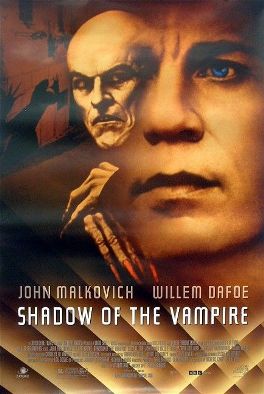
Shadow of the Vampire is a 2000 independent period vampire mystery film directed by E. Elias Merhige and written by Steven Katz. The film stars John Malkovich and Willem Dafoe. It is a fictionalized account of the making of the classic vampire film Nosferatu, eine Symphonie des Grauens, directed by F. W. Murnau, during which the film crew begin to have disturbing suspicions about their lead actor.

Gabriel James Byrne is an Irish actor. He has received a Golden Globe Award as well as nominations for a Grammy Award, two Primetime Emmy Awards and two Tony Awards. Byrne was awarded the Irish Film and Television Academy Lifetime Achievement Award in 2018 and was listed at number 17 on The Irish Times list of Ireland's greatest film actors in 2020. The Guardian named him one of the best actors never to have received an Academy Award nomination.

The Player is a 1992 American satirical black comedy mystery film directed by Robert Altman and written by Michael Tolkin, based on his own 1988 novel of the same name. The film stars Tim Robbins, Greta Scacchi, Fred Ward, Whoopi Goldberg, Peter Gallagher, Brion James and Cynthia Stevenson, and is the story of a Hollywood film studio executive who kills an aspiring screenwriter he believes is sending him death threats.
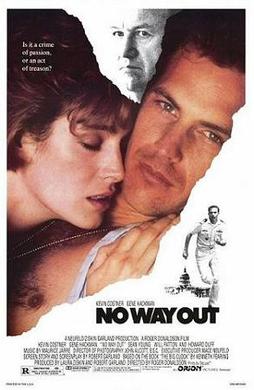
No Way Out is a 1987 American neo-noir action thriller film directed by Roger Donaldson and starring Kevin Costner, Gene Hackman, Will Patton, and Sean Young. Howard Duff, George Dzundza, Jason Bernard, Fred Thompson, and Iman appear in supporting roles. The film is based on the 1946 novel The Big Clock by Kenneth Fearing, previously filmed as The Big Clock (1948) and Police Python 357 (1976).
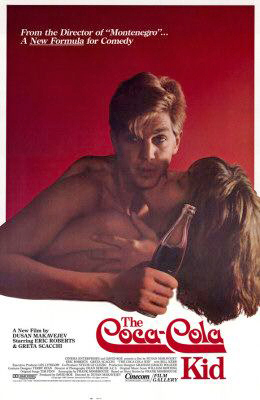
The Coca-Cola Kid is a 1985 Australian romantic comedy film. It was directed by Dušan Makavejev and stars Eric Roberts and Greta Scacchi. The film is based on the short stories The Americans, Baby, and The Electrical Experience by Frank Moorhouse, who wrote the screenplay. It was entered into the 1985 Cannes Film Festival.
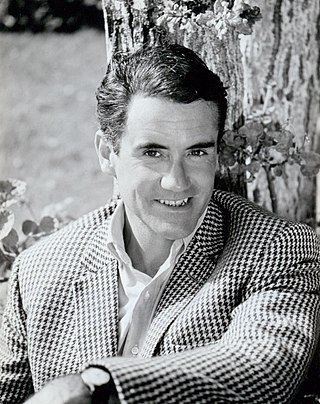
Ian Edmund Bannen was a Scottish actor with a long career in film, on stage, and on television. He was nominated for an Academy Award for his performance in The Flight of the Phoenix (1965), the first Scottish actor to receive the honour, as well as two BAFTA Film Awards for his performances in Sidney Lumet's The Offence (1973) and John Boorman's Hope and Glory (1987).
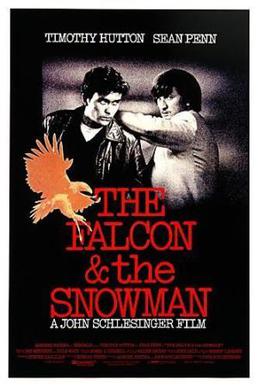
The Falcon and the Snowman is a 1985 American spy drama film directed by John Schlesinger. The screenplay by Steven Zaillian is based on the 1979 book The Falcon and the Snowman: A True Story of Friendship and Espionage by Robert Lindsey, and tells the true story of two young American men, Christopher Boyce and Andrew Daulton Lee, who sold US security secrets to the Soviet Union.
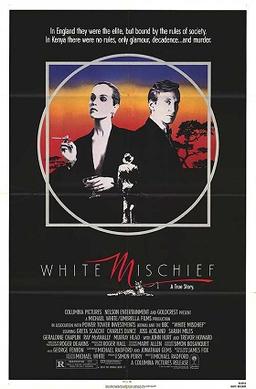
White Mischief is a 1987 British drama film starring Greta Scacchi, Charles Dance and Joss Ackland. It was directed by Michael Radford. The film was based upon the non-fiction book White Mischief: The Murder of Lord Erroll (1982), by James Fox, which originated from a newspaper article published in 1969.

Gorky Park is a 1983 American mystery thriller film based on the book of the same name by Martin Cruz Smith. The film was directed by Michael Apted.
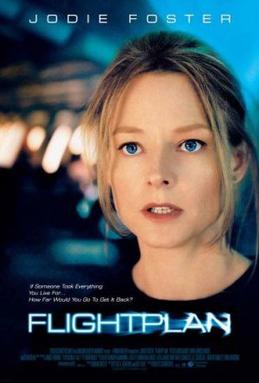
Flightplan is a 2005 mystery psychological thriller film directed by Robert Schwentke from a screenplay written by Peter A. Dowling and Billy Ray. It stars Jodie Foster as Kyle Pratt, a recently widowed American aircraft engineer living in Berlin, who flies back to the U.S. with her daughter and her husband's body. She loses her daughter during the flight and must struggle to find her while proving her sanity at the same time. It also features Peter Sarsgaard, Erika Christensen, Kate Beahan, Greta Scacchi, Sean Bean, and Matt Bomer in his film debut.
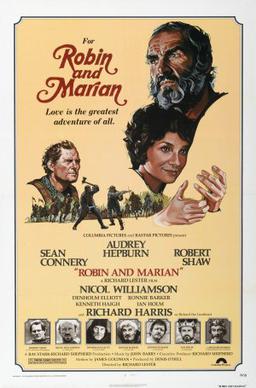
Robin and Marian is a 1976 romantic adventure film from Columbia Pictures, shot in Panavision and Technicolor, that was directed by Richard Lester and written by James Goldman after the legend of Robin Hood. The film stars Sean Connery as Robin Hood, Audrey Hepburn as Lady Marian, Nicol Williamson as Little John, Robert Shaw as the Sheriff of Nottingham, Richard Harris as Richard the Lionheart, and Denholm Elliott as Will Scarlet. It also features comedian Ronnie Barker in a rare film role as Friar Tuck. Robin and Marian was filmed in Zamora, as well as Artajona, Urbasa, Quinto Real and Orgi, all small medieval villages in Navarre, Spain. It marked Hepburn's return to the screen after an eight-year absence.

Jefferson in Paris is a 1995 historical drama film, directed by James Ivory, and previously entitled Head and Heart. The screenplay, by Ruth Prawer Jhabvala, is a semi-fictional account of Thomas Jefferson's tenure as the Ambassador of the United States to France before his presidency and of his alleged relationships with Italian-English artist Maria Cosway and his slave, Sally Hemings.
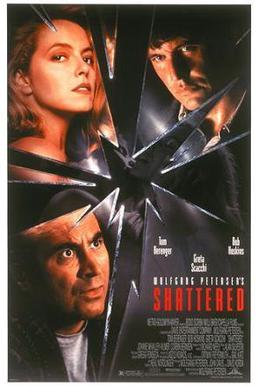
Shattered is a 1991 American psychological thriller film written and directed by Wolfgang Petersen, based on the novel by Richard Neely. The film stars Tom Berenger, Greta Scacchi, Bob Hoskins, Joanne Whalley and Corbin Bernsen.
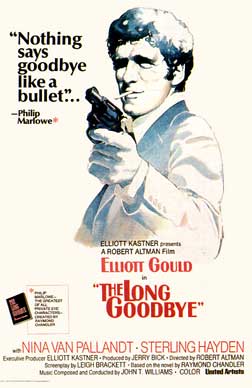
The Long Goodbye is a 1973 American satirical neo-noir film directed by Robert Altman and written by Leigh Brackett, based on Raymond Chandler's 1953 novel. The film stars Elliott Gould as Philip Marlowe and features Sterling Hayden, Nina Van Pallandt, Jim Bouton, Mark Rydell, and an early, uncredited appearance by Arnold Schwarzenegger.

Heat and Dust is a 1983 British historical romantic drama film, with a screenplay by Ruth Prawer Jhabvala based on her novel, Heat and Dust (1975). It was directed by James Ivory and produced by Ismail Merchant. It stars Greta Scacchi, Shashi Kapoor and Julie Christie.

The Mackintosh Man is a 1973 Cold War spy film directed by John Huston from a screenplay by Walter Hill, based on the novel The Freedom Trap by English author Desmond Bagley. Paul Newman stars as Joseph Rearden, a jewel thief-turned-intelligence operative, sent to infiltrate a Soviet spy ring in England, by helping one of their agents break out of prison. The cast also features Dominique Sanda, James Mason, Harry Andrews, Michael Hordern and Ian Bannen.
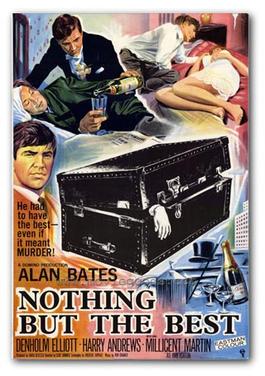
Nothing but the Best is a 1964 British black comedy film directed by Clive Donner and starring Alan Bates, Denholm Elliott, Harry Andrews and Millicent Martin. The screenplay by Fredrick Raphael is based on the 1952 short story "The Best of Everything" by Stanley Ellin.

Blade on the Feather is a television drama by Dennis Potter, broadcast by ITV on 19 October 1980 as the first in a loosely connected trilogy of plays exploring language and betrayal. A pastiche of the John Le Carré spy thriller and transmitted eleven months after Anthony Blunt was exposed as the 'fourth man', the drama combines two of Potter's major themes: the visitation motif and political disillusionment. The play's title is taken from "The Eton Boating Song".




















